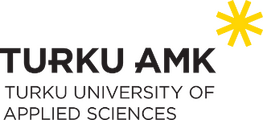Cultural competencies among nurses in the Western Balkans
In this project, we develop educational modules that support (student) nurses in developing competencies needed to provide care to people from diverse cultural backgrounds. Cultural differences between caregivers and care recipients can hinder access to care and limit the (perceived) quality of care. We focus on nurses in Bosnia and Herzegovina and Albania. These countries are located in the Western Balkans, a multicultural region crossed by migration routes from Africa and Asia towards the European Union. We gather up-to-date scientific knowledge on teaching methods for developing cultural competencies. Based on this, educational modules are designed and implemented. These are evaluated using scientifically recognized evaluation tools.

With the financial support of ERAMUS-EDU-2023-CBHE (Capacity Building projects in the field of higher education strand 2)

Supporting development of TransCultural Competence for healthcare professionals in the Western Balkans (TCCWB)
In multicultural societies, there is a risk that racial and ethnic minority groups will receive lower quality health care than majority populations. In the North American context, it has been repeatedly scientifically demonstrated that attention should be paid to the cultural and language barriers between healthcare providers and patients. To lower such barriers, educational interventions in which caregivers develop cultural competence help. In Europe, societies are also culturally diverse and face significant challenges of inequality and social discrimination. However, in Europe, the widespread implementation of cultural competency interventions among healthcare providers has not yet been achieved, and scientific studies on this topic are quite limited.

Bosnia and Herzegovina and Albania are located in the Western Balkans, a region with a long history of intercultural encounters, along migration routes from Africa and Asia towards the European Union. Cultural competence among healthcare professionals are therefore very important here, but the health and education systems in the Western Balkans are very rigid.
Within our project, educational modules will be developed to integrate cultural competence into training for (student) nurses. The educational modules will stimulate the development of knowledge, skills and attitudes needed during interactions with people from different cultural backgrounds. By highlighting the most vulnerable and the different values, beliefs, lifestyles and mindsets of the care recipients, this project helps to lay the foundation for strengthening active citizenship among nursing students and teachers. This project integrates digitalization into the nursing curriculum and stimulates the development and implementation of digital higher education in Albania and in Bosnia and Herzegovina.
We map the current situation regarding cultural competence among nurses in the Western Balkans and the possibility of integrating digitalization and micro-credentials into education. We collect up-to-date scientific knowledge on teaching methods for the development of cultural competences. Starting from this, educational modules will be designed and implemented in the nursing curriculum of five higher education institutions in Albania and in Bosnia and Herzegovina. These modules will be evaluated using scientifically recognized evaluation tools.
The output will be useful for both teachers and (student) nurses, including students with a migrant background studying in the Western Balkans. The results will be shared with students, nurses, educators and representatives of education ministries in the Western Balkans at conferences and at other platforms or media.
A literature review conducted by Odisee and Turku University of Applied Sciences describes effective teaching methods for teaching cultural competences. A summary can be found in this online article.
Partners
3 HEIs from BIH:
University of East Sarajevo (UES)
University of University of Mostar- Džemal Bijedić (UNMO)
University of Zenica (UNZE)
2 HEIs from Albania:
University of Shkodra (UNSHKO)
University of Gjirokastra (ECUG)
2 NGOs from Bosnia and Herzegovina:
Fondacija FAMI (FAMI)
Sarajevo Meeting of Cultures (SMOC)
2 HEIs from program countries:
Odisee University of Applied Sciences, Belgium (ODISEE)
Turku AMK University of Applied Sciences, Finland (TUAS)








